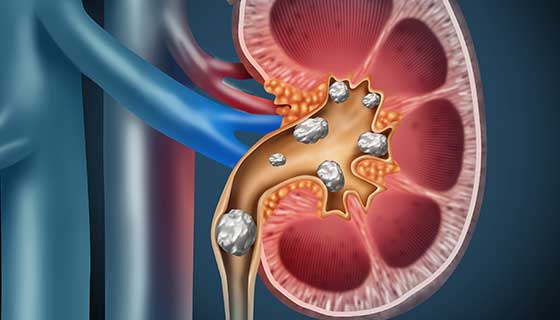
Controlling kidney health necessitates thoughtful consideration of one’s diet to promote optimal kidney function and overall well-being. Although certain fruits may need to be consumed in moderation because of their sodium content, there are others that can be incorporated into a kidney-friendly diet. Discover a variety of fruits that can be particularly helpful for individuals with kidney issues. Gain valuable insights into the benefits of these fruits and find suggestions on how to easily include them in your diet.
1. Apples
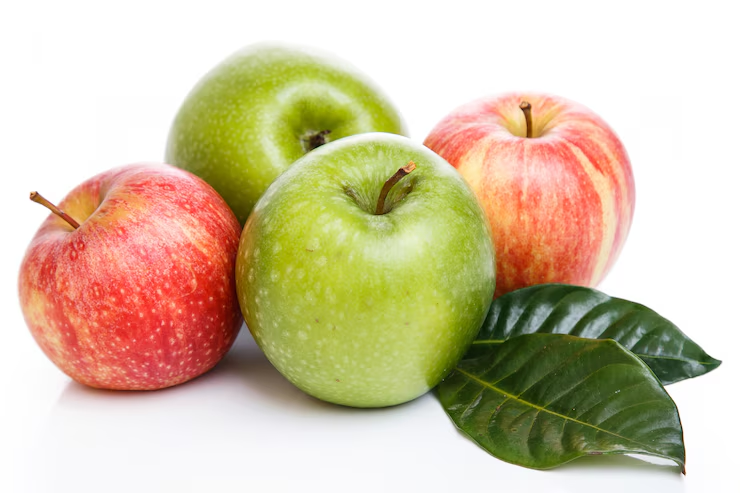
Apples are an excellent option for a kidney-friendly diet because they have low levels of potassium and phosphorus. Additionally, they have a rich fiber content that can be beneficial for maintaining healthy cholesterol levels and blood sugar. The soluble fiber found in apples, especially pectin, can be beneficial for individuals with kidney issues as it aids in reducing inflammation and supporting heart health.
Apples can be savored in a multitude of ways. Enjoy them as a quick snack, savor their deliciousness when baked with a sprinkle of cinnamon, or enhance your fruit salads with their refreshing taste. Another excellent choice is unsweetened applesauce, which offers a gentle and easily digestible alternative while preserving the majority of the apple’s nutritional advantages.
2. Berries
Different kinds: strawberries, blueberries, raspberries, and cranberries.
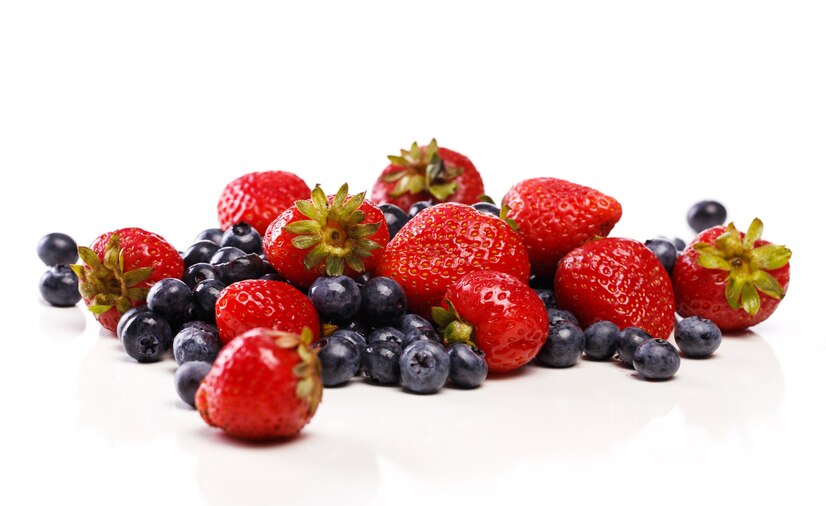
Berries offer a wide range of nutritional benefits, including a high concentration of antioxidants, essential vitamins, and dietary fiber. These are ideal for a kidney-friendly diet due to their low potassium content. Cranberries, especially, have proven to be quite helpful in preventing urinary tract infections, which can be a frequent concern for individuals with kidney problems. The abundant antioxidants found in berries play a crucial role in safeguarding the body’s cells and promoting overall well-being.
Enhance Your Morning: Elevate your breakfast experience by introducing the vibrant flavors of berries. Sprinkle them onto your cereal, mix them into your oatmeal, or layer them into your creamy yogurt. They can also be incorporated into smoothies for a refreshing beverage or enjoyed fresh or frozen as a snack. For a delightful indulgence, consider creating a luscious fruit compote to enhance your pancakes or waffles.
3. Grapes
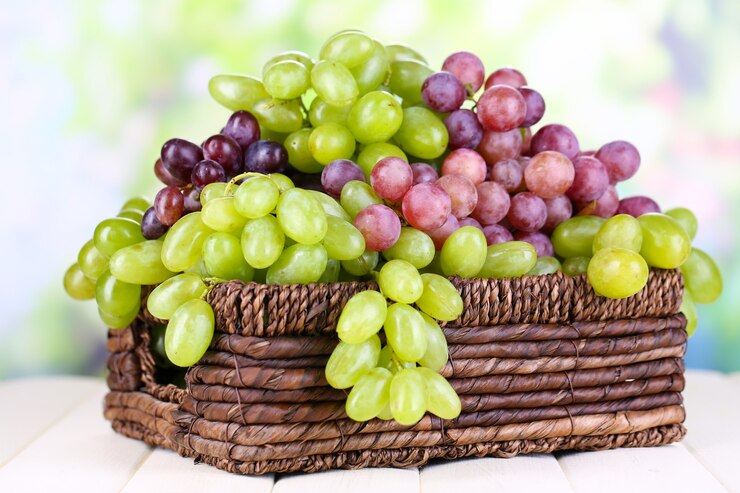
Grapes have a low potassium content and are packed with vitamins C and K. They also contain potent antioxidants that can safeguard cells from harm and potentially possess anti-inflammatory qualities. Grapes are refreshing and can provide a natural boost of energy with their inherent sugars.
Grapes possess remarkable versatility. Indulge in them as a tasty snack, incorporate them into a vibrant fruit salad, or savor their icy goodness when frozen. They can also be used in savory dishes, like chicken salad, or paired with cheese for a balanced snack.
4. Pineapple
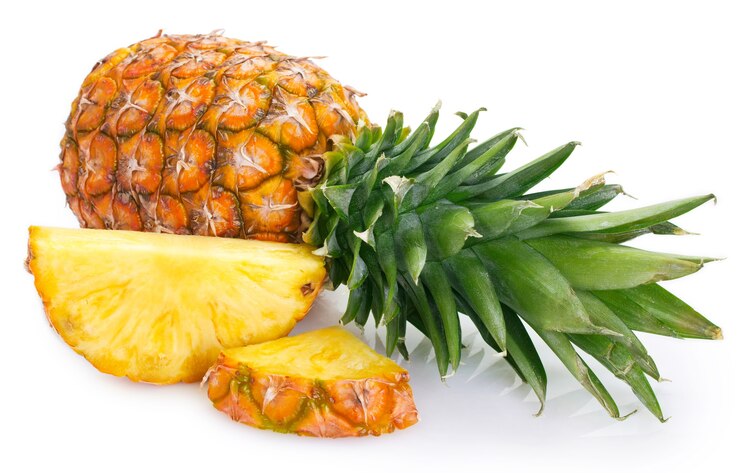
Pineapple is a tropical fruit that offers a multitude of health advantages. It is low in potassium and packed with vitamin C and manganese, making it a valuable addition to your diet. This product includes bromelain, an enzyme that supports digestion and possesses anti-inflammatory properties. This makes pineapple especially helpful for individuals who have digestive issues related to kidney problems.
Fresh pineapple chunks are delightful when savored alone, blended into refreshing smoothies, or incorporated into savory creations such as salads and stir-fries. Pineapple is a great complement to grilled meats, adding a delightful combination of sweetness and tanginess to enhance the savory flavors.
5. Pears
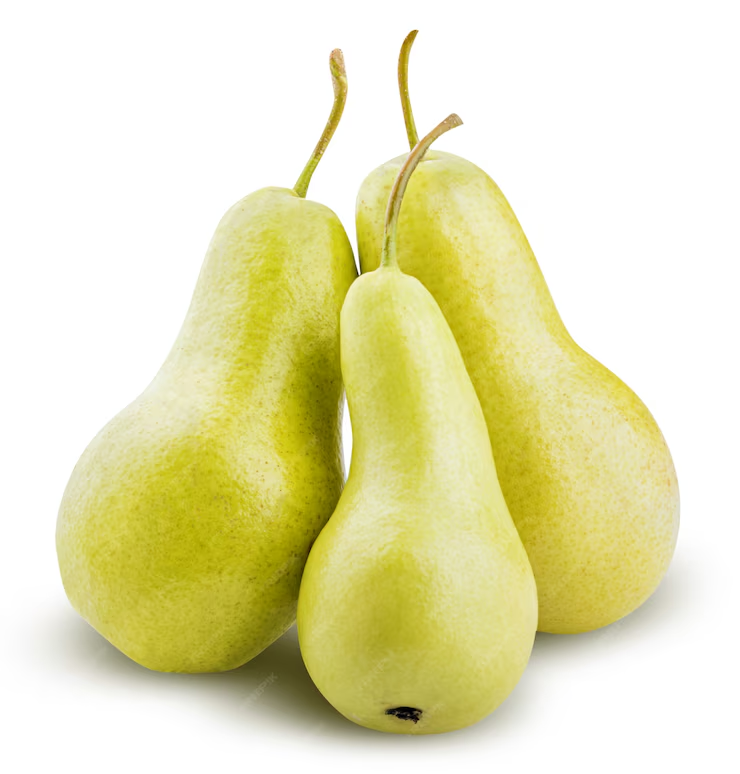
Pears offer a low potassium and phosphorus content while providing a good amount of dietary fiber. This promotes a healthy digestive system and aids in keeping blood sugar levels stable. Their abundant water content helps with hydration, which is crucial for maintaining proper kidney function.
Pears can be savored in their natural state as a delightful snack, incorporated into salads for a burst of freshness, or transformed into a delectable warm dessert with a touch of cinnamon. They can also be cooked in either wine or water for a tender, tasty treat that preserves their healthful qualities.
6. Plums
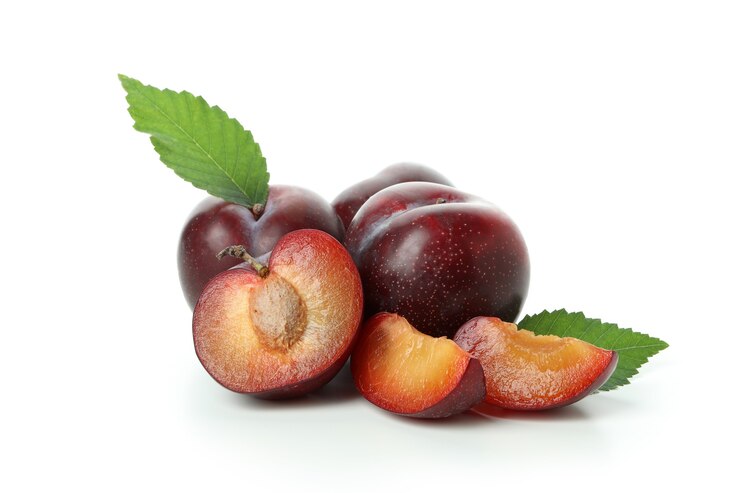
Plums offer a moderate amount of potassium and are rich to vitamins A and C, along with beneficial anti-oxidants. Their abundant water content promotes hydration, while their fiber content supports healthy digestion.
Indulge in the delightful taste of fresh plums by enjoying them as a snack, incorporating them into refreshing fruit salads, or relishing their sweetness in fruit compotes. In moderation, dried plums (prunes) can be quite beneficial, as they aid in digestion and promote regularity.
8. Peaches
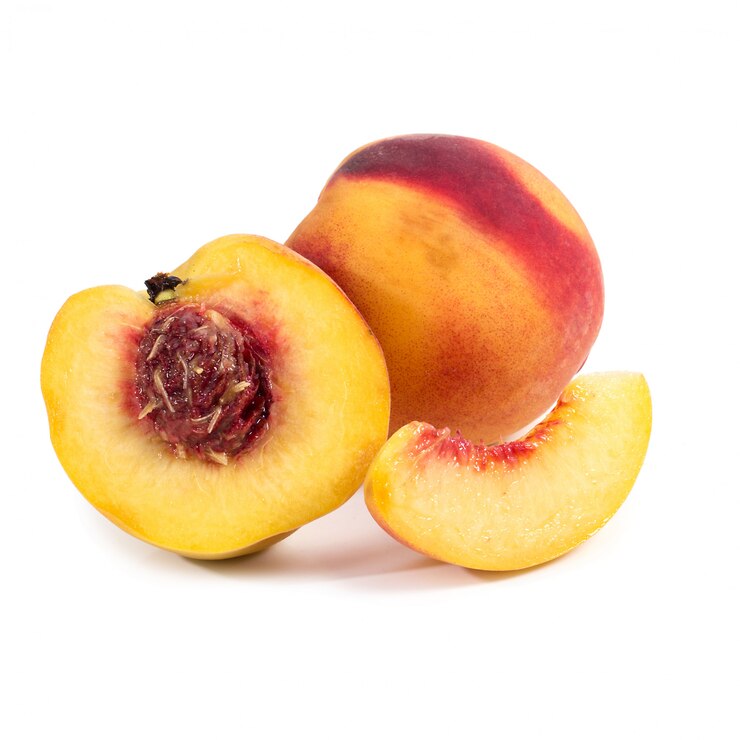
Peaches have a low potassium content and are rich in vitamins A and C. In addition to their nutritional benefits, they also contribute to a well-functioning digestive system and support weight management. Peaches contain antioxidants that can help protect the body from oxidative stress.
Savor the deliciousness of fresh peaches by enjoying them as a refreshing snack, incorporating them into your favorite yogurt or cereal, or indulging in a wholesome dessert by baking them. Grilled peaches are a delightful complement to salads or a perfect accompaniment to grilled meats.
8. Watermelon
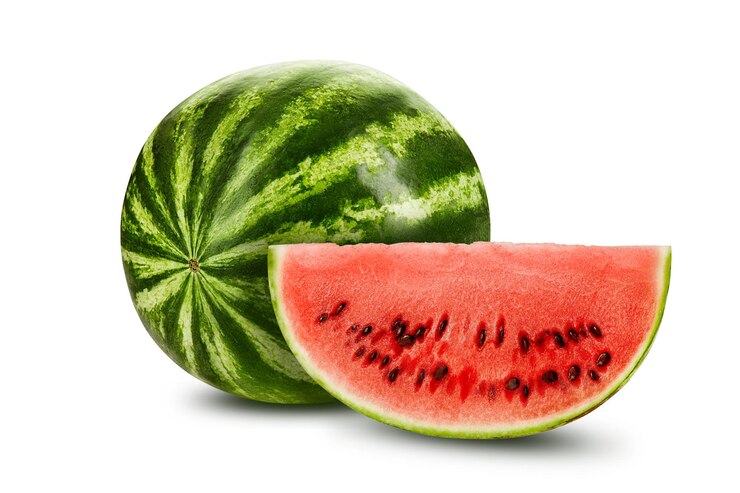
Watermelon is ideal for staying hydrated due to its low potassium levels and high water content. It also offers a good dose of vitamins A and C, which are essential for maintaining a strong immune system and promoting healthy skin. The natural flavor of watermelon can be a satisfying alternative to added sugars, helping to curb sugar cravings.
Savor the deliciousness of fresh watermelon slices by enjoying them as is, incorporating them into fruit salads, or blending them into a revitalizing smoothie. Watermelon is a great addition to savory salads, especially when combined with feta cheese and mint. It adds a refreshing and hydrating element to the dish.
Tips on How to Include Fruits in a Diet That Is Kidney-Friendly
Control
It’s important to be mindful of the amount of potassium you consume when consuming these fruits, especially if you have kidney issues. Moderation is key to ensuring your safety. It’s crucial to adhere to the recommended portion sizes advised by your healthcare provider or dietitian.
Complete and Fresh
Opt for fresh or frozen fruits that are free from any added sugars or preservatives. Steer clear of canned fruits in syrup, as they frequently come with unwanted sugars and preservatives that can have negative effects on kidney health.
Equitable Distribution
It is advisable to distribute your fruit intake evenly throughout the day rather than consuming a large quantity all at once. This aids in the more efficient management of potassium levels, thereby preventing any sudden increases that may put undue stress on the kidneys.
Keep a close eye on potassium levels.
Consider your meal sizes and speak with a doctor or nutritionist if you have been told to restrict your intake of potassium. It is important to regularly monitor your potassium levels through blood tests to ensure they are maintained at a safe range.
Drink plenty of water
Ensuring proper hydration is essential for maintaining optimal kidney function. Include fruits that have a high water content, such as watermelon, in your diet to maintain proper hydration. Proper hydration plays a crucial role in optimizing kidney function and reducing the risk of kidney stones.
Get Advice from a Nutritionist

It is always advisable to seek guidance from a healthcare provider or dietitian who can customize your diet according to your individual requirements. They offer tailored guidance that takes into account your individual health condition and dietary limitations, guaranteeing that you are making optimal decisions for the well-being of your kidneys.
Conclusions
Adding the appropriate fruits to your diet can supply vital nutrients and promote kidney health. By choosing fruits that are low in potassium and phosphorus, you can savor a wide range of delectable and nourishing options while effectively managing your kidney condition. It is always advisable to seek guidance from a healthcare professional or dietitian who can customize your diet according to your individual requirements and help you make optimal choices for your well-being. By implementing a well-thought-out strategy and being conscious of your food choices, you can adhere to a diet that promotes kidney health and contributes to your overall wellness.